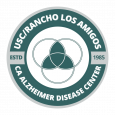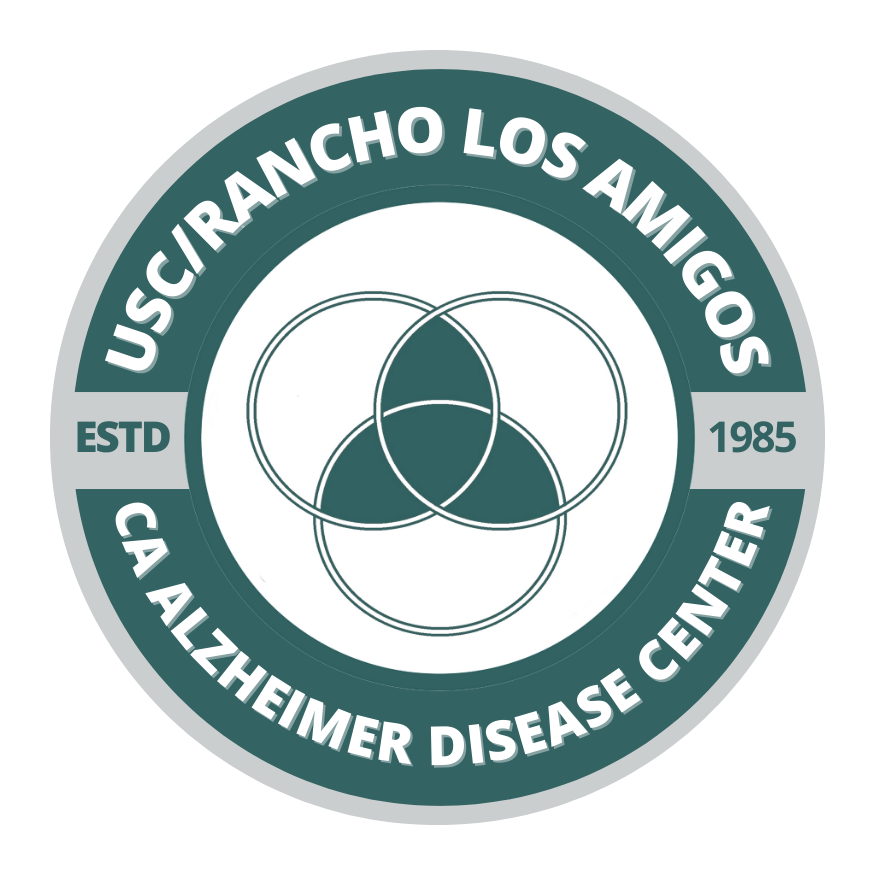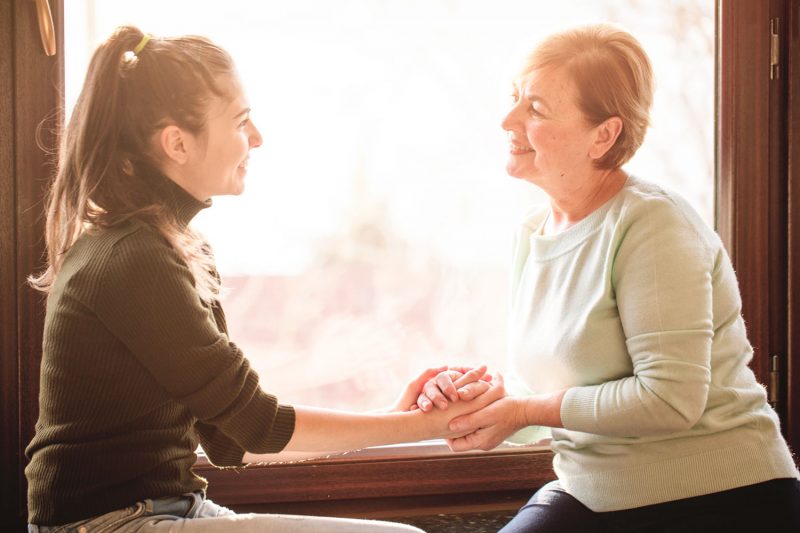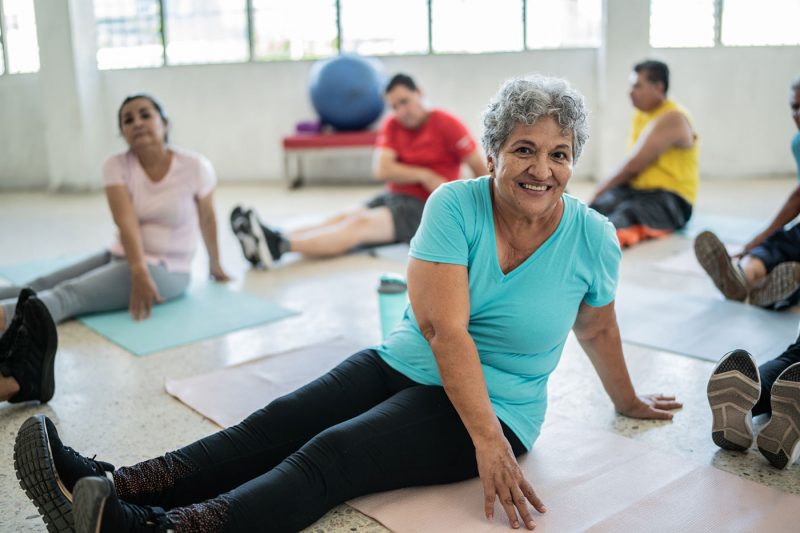Early Onset Alzheimer’s Disease and Other Early Dementias

At our Center of Excellence for Early Onset Alzheimer’s disease and Other Early Dementias (EOAD) , we are dedicated to supporting caregivers of patients with early onset dementia, including those with inherited Alzheimer’s disease variants and other early dementias. We offer a comprehensive range of services designed to alleviate the challenges faced by caregivers. Our specialized programs include personalized care plans, educational resources, and support groups by providing these essential services; we aim to enhance the quality of life for both patients and caregivers, fostering a supportive and informed community.
For additional information, please contact Joseph Herrera 562-385-8145 or josephrh@usc.edu
Understanding Early Onset Alzheimer’s disease and Other Early Dementias
Early Onset Alzheimer’s Disease and other early dementias, such as frontotemporal dementia and vascular dementia, affect individuals under the age of 65, sometimes as early as in their 30s or 40s. These conditions can be particularly challenging, impacting work, family, and daily life. USC/Rancho Los Amigos Geriatric Neurobehavior and Alzheimer’s Center is a center of excellence dedicated to supporting patients and caregivers by providing comprehensive medical and clinical services, as well as community resources designed to lessen the impact of these diagnoses and reduce caregiver burden and stress. We offer access to specialized care, educational materials, support groups, and practical tools to help navigate this journey. Together, we can improve quality of life and foster a supportive community.https://www.youtube.com/watch?v=_ZOIoj6jrtohttps://www.youtube.com/watch?v=VRZY6JqFQdo&pp=0gcJCbIJAYcqIYzvhttps://www.youtube.com/watch?v=Z-Vobcu1jc4https://www.youtube.com/watch?v=sF03t-xO48k
Caregivers can find a variety of support resources here, including:
Support Groups
Join our online and in-person support groups to connect with others who understand the challenges of caregiving.
Educational Materials
Access articles, videos, and webinars on managing symptoms, caregiving strategies, and self-care tips.
Community Resources
Find local services such as respite care, counseling, and legal advice to help manage the practical aspects of caregiving.
Personalized Care Plans
Work with our specialists to develop a care plan tailored to you and your loved one’s needs.
Community Services and Resources referrals
These resources are designed to provide emotional support, practical advice, and a sense of community to help caregivers navigate their journey.
Taking care of yourself is crucial when you’re a caregiver. Here are some self-care tips to help you maintain your well-being:
Take Breaks
Schedule regular breaks to rest and recharge. Even short breaks can make a big difference.
Stay Connected
Maintain social connections with friends and family. Don’t hesitate to reach out for support.
Exercise
Incorporate physical activity into your routine. It can help reduce stress and improve your mood.
Healthy Eating
Eat a balanced diet to keep your energy levels up and support your overall health.
Mindfulness and Relaxation
Practice mindfulness, meditation, or deep-breathing exercises to manage stress.
Seek Professional Help
Don’t hesitate to talk to a therapist or counselor if you’re feeling overwhelmed.
Join Support Groups
Connect with other caregivers who understand what you’re going through. Sharing experiences can be very comforting.
Set Boundaries
Learn to say no and set limits to avoid burnout. It’s okay to prioritize your own needs sometimes.
Engage in Hobbies
Make time for activities you enjoy. Hobbies can provide a much-needed mental break.
Get Enough Sleep
Aim for 7-9 hours of sleep per night to help your body and mind recover.
Remember, taking care of yourself isn’t selfish—it’s essential for being able to care for others effectively. How do you currently manage your self-care?
Self-care is crucial when caring for someone with early onset dementia for several reasons:
Preventing Burnout
Caregiving can be physically and emotionally demanding. Regular self-care helps prevent burnout, ensuring you can continue to provide the best care possible.
Maintaining Health
Your physical and mental health are essential. Proper self-care, including exercise, healthy eating, and adequate sleep, helps you stay strong and resilient.
Emotional Well-being
Caring for someone with dementia can be emotionally taxing. Self-care activities like mindfulness, hobbies, and socializing can help manage stress and maintain a positive outlook.
Quality of Care
When you take care of yourself, you’re better equipped to take care of your loved one. A well-rested and healthy caregiver can provide more effective and compassionate care.
Role Modeling
Demonstrating self-care sets a positive example for others involved in caregiving, encouraging a supportive and balanced approach within the caregiving community.
Remember, taking time for yourself isn’t selfish—it’s a vital part of being an effective caregiver. How do you currently incorporate self-care into your routine?
Caregiver burnout can manifest in various ways, often resembling symptoms of stress and depression. Here are some common signs to watch for:
Emotional and Physical Exhaustion
Feeling constantly tired, even after resting.
Withdrawal
Pulling away from friends, family, and social activities.
Loss of Interest
No longer enjoying activities you once found pleasurable.
Feelings of Hopelessness
Experiencing a sense of helplessness or despair.
Changes in Appetite or Weight
Eating more or less than usual, leading to weight gain or loss.
Sleep Disturbances
Difficulty falling asleep, staying asleep, or sleeping too much.
Irritability
Increased frustration and anger over small things.
Anxiety and Depression
Persistent feelings of worry, sadness, or hopelessness.
Health Issues
Increased frequency of illnesses or worsening of chronic conditions.
Recognizing these signs early can help you take steps to address burnout and seek the support you need. How are you feeling about your caregiving role lately?






